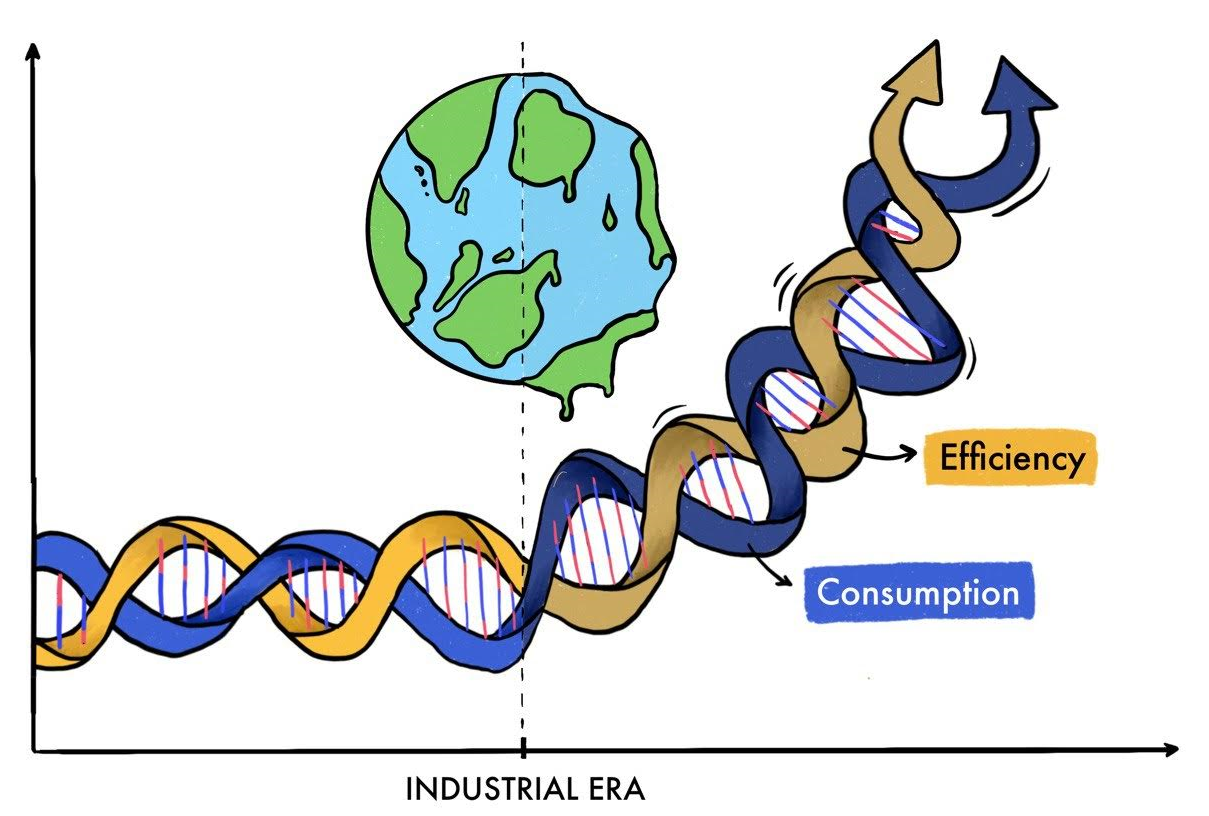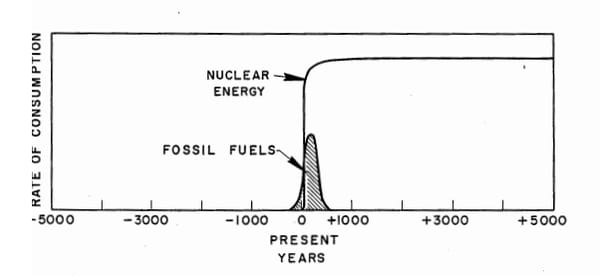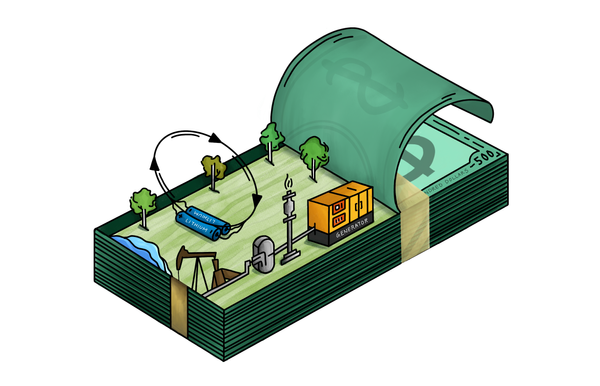Jevons Paradox-Our inevitable companion
Interplay of efficiency and consumption in our modern society.

Key points from this article:
- → Efficiency gains increase energy consumption in our modern life as we enlarge our pool of wants. This is known as Jevons Paradox.
- → Rise of Artificial intelligence only accelerates this trend.
- → This trend is not systemic but does frequent in major consumeristic sectors.
Efficiency is a commonly used metric for the promotion of any new technology in the market. It is reasonable to do that unless the total energy consumption (or emissions) increases from the adoption of the technology after a considerable elapsed period. This is known as Jevons Paradox or Rebound effect, which states that efficiency gains can paradoxically increase energy consumption! This paradox is a recurring feature in our path to develop efficient technologies, so let us delve into the history of the conception of this paradox and its implications in more detail.
This paradox was first described by the English economist William Stanley Jevons in 1865. Jevons observed that England's consumption of coal soared after James Watt introduced the Watt steam engine, which greatly improved the efficiency of the coal-fired steam engine from earlier design. Watt's innovations made coal a more cost-effective energy source, leading to the increased use of the steam engine in a wide range of industries. This in turn increased the total coal consumption, even as the amount of coal required for any given application decreased. This trend is observable in various mainstream technologies today. For example, with the advent of more energy efficient lithium batteries (aka batteries with high energy density), the total usage of lithium batteries has gone up in the smartphones industry. Efficiency gains is used up by the ever-rising software applications built around the smartphone in this case. Similar paradox is also observed in urban transportation where increasing road capacity can make traffic congestion worse (by encouraging people to buy private vehicles).
As per World in Data[1], the primary energy consumption globally has increased 287% from 1965 up to 2022. Primary energy refers to the energy available as resources before it has been transformed. This is the period where multiple “greener” energy sources have come to global adoption (renewables, nuclear etc) in addition to traditional oil, coal and natural gas alongside efficiency improvements in all energy sources in due course. This has not reduced our energy appetite, thereby validating the Jevons Paradox at the global level.
The underlying theme in our modern life is that as humans get access to additional energy sources alongside efficiency improvements, we end up consuming that resource more than before to satisfy our enlarging pool of consumeristic wants and in pursuit of new discoveries.
Efficiency improvements can also bring complacency and slack in our consumer behaviour, which negates the gains as well. Hence our net energy consumption is only rising as more technologies come into our daily life. This highlights the fact that, collectively, behavioural change is equally important (if not more) as technological change in reducing our overall energy usage (emissions) to combat climate change.
With the rise of artificial intelligence our resource extractive efficiency only improves, and the Jevons paradox becomes more entrenched. The rise of powerful computing chips from Nvidia has resulted in need for efficient thermal cooling in data center racks packed with these chips. Conventional air cooling in the racks has been replaced with direct to chip cooling and immersion cooling. At the same time, semiconductor companies are coming up with chips having higher thermal design power (TDP). The upward trend of chip TDP is matched with increasing cooling efficiency of data centre racks. Another example is Shell collaborating with NVIDIA to improve their reservoir modelling capabilities[2]. Energy companies like Shell would like a detailed view of the reservoirs beneath the Earth’s surface that are rich in oil and natural gas for operational ease in extraction. To achieve this, they develop 3D volume models, construct images of micro-scale pore structures of rocks and run flow simulations. However, such tasks are computationally intensive. Hence leveraging the latest GPU’s and AI from Nvidia for such modelling tasks helps Shell to improve the speed and accuracy of optimum reservoir location predictions, ultimately enabling them to maximize recovery from new and existing fields. We can expect more such collaborations in the energy and mining sector moving forward. If that is the case, we must reject the utility of efficiency gains in any industrial sector in reducing emissions and rather shift our focus to moderate the growth obsessed economic system. Physicist Niels Bohr once said: “No paradox, no progress.” This quote lends a sense of inevitability to Jevons Paradox in the modern world.
PS: If you like to dive deep into the historical context and further evidence on Jevon's paradox, I recommend the book 'The Jevons Paradox and the Myth of Resource Efficiency Improvements'
References
[1] Energy consumption by source, World (ourworldindata.org)
[2] NVIDIA Success Story | Shell

Buy me a coffee or support via Paypal (both links below) if you enjoyed reading this post and found it insightful. Would love to hear your comments on the article.
Please subscribe as well. Appreciate your support!
Content writing for Anabe Labs by Rajesh Hegde is licensed under CC BY-SA 4.0



